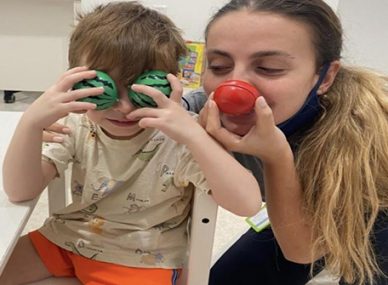As parents, it’s only natural to hope that our child’s small delays or missed milestones will resolve on their own. But what if they don’t? Ignoring early signs, even small ones, can have lasting consequences for your child’s development. Waiting to take action could mean missing the critical window when help is most effective.
Why Early Intervention is Essential
The early years of your child’s life are a time of rapid brain development. During this time, the brain is most adaptable and able to overcome challenges more easily through the early intervention programs designed for toddlers. Delaying intervention means risking your child falling further behind—whether it’s their ability to speak, move, or engage socially. Once that window closes, it becomes much harder for your child to catch up later.
Don’t Wait for a Diagnosis
You don’t need to wait for a formal diagnosis to get help. If your child is showing red flags—no matter how small—there could be underlying issues that grow worse with time. What seems like a “small delay” today could turn into a larger problem later, impacting your child’s education, social life, and future opportunities. Waiting too long can lead to a lifetime of regret over missed chances.
Trust Your Instincts—Don’t Ignore the Signs
Parents are the first to notice when something doesn’t feel right. Ignoring those instincts or hoping the delay will go away could mean depriving your child of the chance to thrive.
The Cost of Waiting
It’s not just about catching up—it’s about preventing larger issues down the road. Without early intervention, developmental delays can worsen, leading to emotional stress, academic struggles, and social challenges that affect both your child and your entire family. The longer you wait, the harder it becomes.






